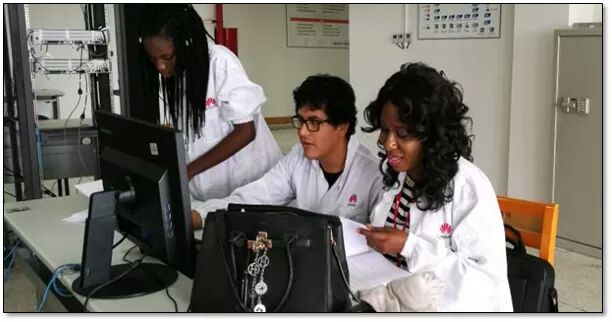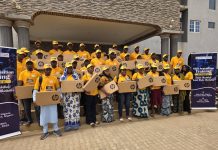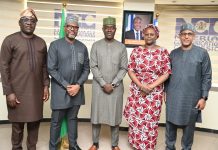My name is Victoria Aduwo, the only female child of my parents and the first of two. I am from Ondo State, Nigeria and I grew up in Navy Town, Festac area of Lagos. My father is a retired Nigerian Naval officer and my mother is an entrepreneur. I studied Chemical Engineering at the Lagos State University, LASU.
Growing up, I always wondered what it was like to be an innovator. As a little girl, I had dreams of being one of the world’s most prominent female innovators. I loved to create things. I enjoyed exploring and experimenting. This shaped all I thought about and all I aspired to do with my time. It fueled my passion. I spent my time experimenting and trying to develop solutions.
Unfortunately, this sort of behavior was generally regarded as masculine, especially as the male gender dominated the sciences, and information technology. I had little or no encouragement from my parents or the people around me. But I was not deterred.
I remember what it was like trying to convince my parents to allow me study Chemical Engineering in the University. My Dad wanted me to be a Medical Doctor. He clearly had his plans for me especially given my position in the family.
I was constantly reminded me that I needed to spend more time building myself as a woman, and not chasing ‘unrealistic’ dreams. The African society still considers the woman’s role as being primarily in the home. I do not entirely disagree, because the home and family should remain important to a woman. However, I do not agree with the idea that a woman should spend the better part of her life in the kitchen, or in the other room for that matter.
The world is itself the woman’s kitchen – a place she prepares and incubates her dreams before serving it to the world to enjoy. I am glad there are many more women in ICT, and that these women are looking to make a difference.
I remember studying Chemical Engineering at LASU. The course was expectedly male dominated and I faced the typical challenges women face being in such environments. People doubted my ability when I tried to prove myself. I was either not given the full credit for my work, or not rewarded for it at all.
This was very discouraging. For the first time in my life, I understood what it meant being in a man’s world. When I tried to be a voice, I was shut down; sometimes by threats. There were times when I would have spent all week building a model or perfecting an experiment. Yet the focus of students and teachers alike seemed to dwell lower down my anatomy than where my mind occupied. My hard work was often times secondary. However, I was determined to keep on trying and I am glad I did because all the hard work eventually paid off.
I had heard a lot about China but like many people of my generation, China meant Kung Fu. China meant the place where anything could be manufactured at low quality. I also innocently had the impression that it was a big country with poor people, poor housing and electricity problems. I had thought generators were used for power at night like most Nigerian neighborhoods. Although I knew it was a tech-driven society, I didn’t know to what extent until I was given the opportunity to see for myself.
My trip to China was facilitated by the ‘Seeds for the Future’ project championed by Huawei Technologies in partnership with the Nigerian Government. I had heard of the Seeds for the Future program through a friend who sent me the ICT for Change website link. When I told my parents about it, they thought it was one of those scams or ‘promise and fail’ offers by the Nigerian Government.
Though my parents agreed that I apply, no one really expected me to be shortlisted. After all, applications had come from all over Nigeria. Having applied via the online portal, we got feedback after three months that I was one of the shortlisted students. I was so excited but this was just the first phase.
My parents had slowly started to believe but they still had doubts of my final selection. We were invited for the training program, and scheduled to write an exam afterwards. Forty (40) out of two thousand (2000) students from different Nigerian universities were eventually selected.
The next phase was the interview, after which, ten finalists were selected, and I was one of the ten (10). I was so thrilled when I got the call informing me that I was one of the successful ten. I was commended for my effort and informed of my trip to China. My parents could not have been prouder! To be a top ten candidate from a pan Nigeria exercise, which only required intellectual input was an achievement almost unparalleled in my entire existence so far. Getting the B.Sc. in engineering was special but this was a completely different kind of rush.
Nothing could have prepared me for what I saw in China. Guangzhou airport alone was a wonder. On our trip to Shenzhen, I was completely blown away. During my stay, I realized China was made up of ultra modern cities, high level technologies, state of the art transport systems, great infrastructure. My original perception was completely wrong.
I particularly loved the Yellow Bike Park, which has bicycles accessible for public use via a mobile app. The app grants access to use the bike and makes payment when returned. I saw cars and buses running on electricity. What a wonderland!
Through the Seeds for the Future platform, we learnt so much about ICT and got first-hand experiences in a global ICT firm from leading ICT facilitators. I got hands-on with state of the art technologies.
My knowledge of ICT prior to the trip was clearly limited. I was introduced to the endless possibilities of information technology. I learnt about Smart Cities, Smart Banking, Smart Housing, Smart Digital Pipelines, Smart Agriculture, and Telemedicine. I learnt so much. My desire for innovation and to make an impact soared to an all-time high. Once again, I dared to dream. I could truly achieve anything I set my mind to.
Travelling to China broadened my horizon. I had a rich experience of the Chinese culture and visited so many historical centers like the Great Wall of China, the Zoo and Pearl Market in Beijing, Folk Town and Luohu Market in Shenzhen. I met other students from all over the world.
I made new friends from different countries like Ecuador, Sweden, Peru, and we still keep in touch up till now. I was thrilled to receive birthday messages from my new friends just a few weeks ago. And the people in China are so friendly. The food is exquisite, with a variety of delicacies to pick from like fried duck, crystal noodles, and dried beef. I really cannot wait to go back.
Professionally, my trip to China inspired me to keep believing that I had a future in ICT. I have developed more passion for innovation. I hope to acquire my Masters degree and probably get a doctorate degree in Information and communication technology, ICT.
Now I am back in Nigeria, with my nine colleagues, and I have new skills ready to execute on projects I am currently running. ICT is clearly the future, and has the capacity to change lives. I am so fired up and excited for the future of ICT in Nigeria, especially with my desire to train the coming generation of ICT enthusiasts.
I recommend that the Nigerian government explores the endless possibilities of ICT just like China has done to tremendously enhance its economy, particularly in the areas of human capacity building, knowledge acquisition and the creation of innumerable opportunities for individuals to optimize their potentials. ICT can be a part of our everyday lives, from smart education to smart telemedicine, smart communities, smart banking.
As Nigeria climbs back from its recent recession, the need for diversification increases and ICT can most definitely fast track the process. Currently, according to International Telecommunication Union (ITU), Nigeria is ranks 143 on the 2017 global ranking on ICT Development Index (IDI). This status can be improved with the joint effort of the Federal Government, academia, and the private sector.
With the appropriate funding for research and telecommunication infrastructure, and with the presence of leading ICT organizations like Huawei Technologies in Nigeria, the potential for success is without limit.
Through structured exchange programs, Nigerian ICT students can attend foreign programs in China and other leading ICT countries, to improve their skills. An ICT University with global facilitators can also be built in Nigeria. These skills and exposure can be used to improve the Nigerian economy.
My message to the other young people in the ICT space is that the possibilities are truly endless and with hard work, determination and dedication, their dreams are totally within reach. Federal Ministry of CommunicationsFederal Ministry of Science and Technology (Nigeria)Federal Ministry of Labour and EmploymentProfessor Yemi Osinbajo






